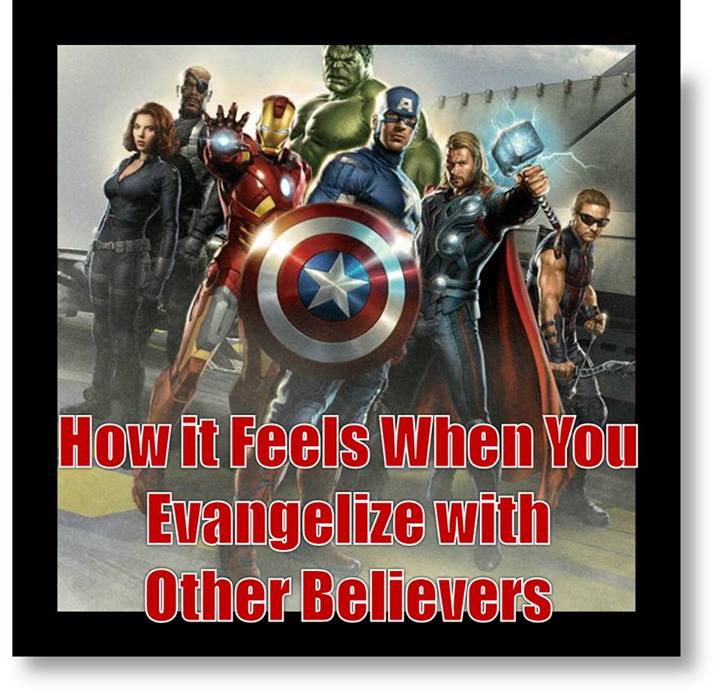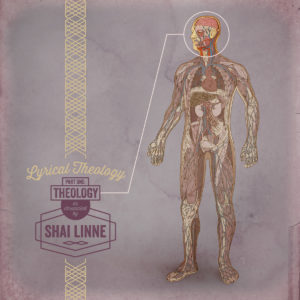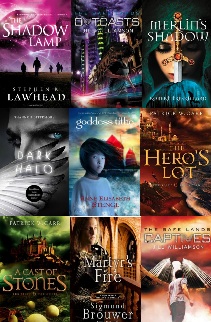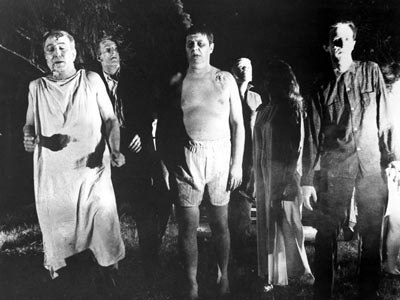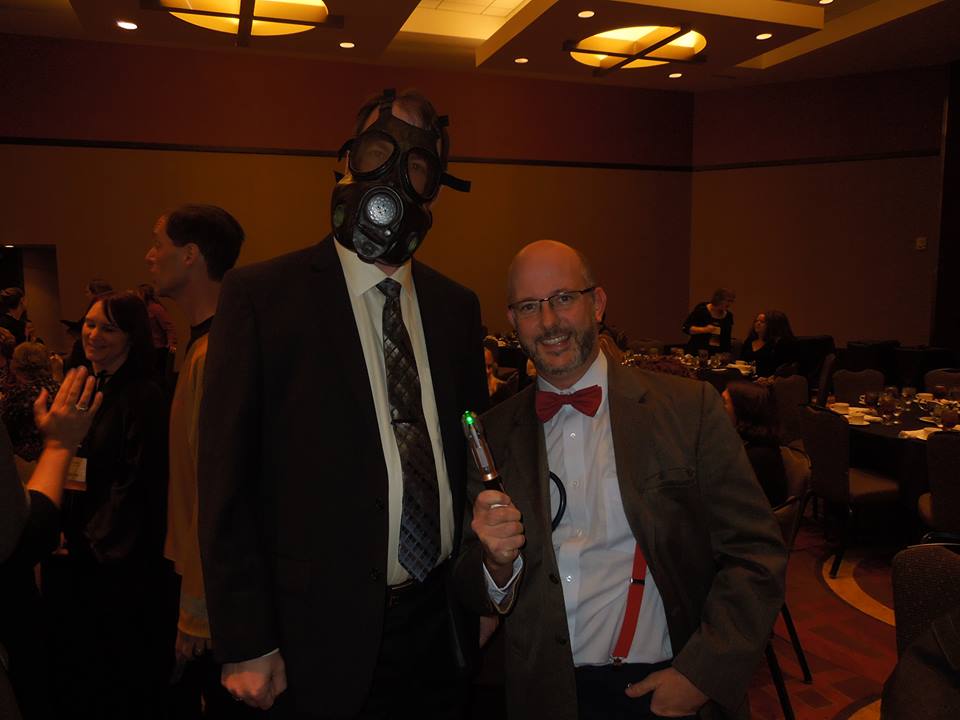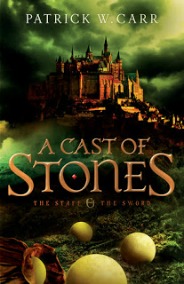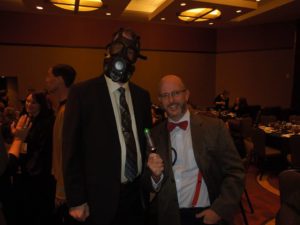The Surprising Delight Of Sudden Geekiness
Last week I suggested we Purge the Stereotypes of âGeekâ Readers. But not with complaints, or by forsaking your own identity, or by removing all official genre distinctions.
Start here.
Geekness alert
This week I found new appreciation for several people: a coworker I havenât met, Answers in Genesis founder and infamous creation-activist Ken Ham, a street-preacher acquaintance on Facebook, and Reformed rapper Shai Linne.
Hereâs why.
Last night before I left for work, I glanced over to said coworkerâs desk and noticed a tiny toy C-3P0 and R2D2.
Sudden geekiness.
Yesterday I was arranging real-estate listings and re-listening to âLyrical Theology, Part 1â by hip-hop artist Shai Linne and several others. Iâd either forgotten or missed these lines:
My job is done if this encourages you to commune with Him
To get a bigger view of Him we gotta dive in deeply though
Six million forms of communication like C-3PO
That was from Linneâs âTable of Contents.â Three tracks later in âActive Obedienceâ:
Although weâre born into a unholy environment
A Holy God can never lower His requirement
You think Godâs accepting something less than perfection?
You must be living in a dream world like Inception
Sudden geekiness.1
Yesterday AiG founder Ken Ham, whoâs preparing for a public debate with evolutionist Bill Nye, posted an image and link to a debate spoof. Ham showed less of a âyou evolutionist kids get off my lawnâ2 side and more of his kindly-geeky side:
At last, theistic evolutionist Dr. James McGrath and I agree about something concerning creation/evolution! McGrath [âŚ]  often writes scathing blogs against me and Answers in Genesis.
Today, I decided to share a recent blog by McGrath (he did it as a spoof) with you, primarily because I love the science fiction TV program âDr. Who.â [âŚ]
Now, it would be great to have a TARDIS machine to travel back in time, but we have a far better âTime Machine.â Itâs called the Bible. [âŚ]
Enjoy his âDr. Whoâ illustrationsâI did! See:
http://www.patheos.com/blogs/exploringourmatrix/2014/01/the-doctor-to-debate-ken-ham.html
Sudden geekiness.
Finally, from my street-preacher acquaintanceâs FB page which more often features verses, evangelical devotionals and theological texts:
Sudden geekiness.
Disregard geek-grumpiness; acquire delight
What does it all mean? If youâre a professing âgeek,â you already know.
- Who is my coworker? You donât know, and (so far) neither do I. But you already feel a kinship. She likes Star Wars! And enough to place little Star Wars toys in her workspace.
- Who is Shai Linne? You may not know, but I described him as a âReformed rapperâ and either word â âReformedâ or ârapperâ â may conjure all manner of meanings, some of them negative. Then again, he cleverly worked in references to Star Wars and Inception.
- Who is Ken Ham? That grumpy creationist guy who hates anyone who disagrees with him and gets especially cross with Christians who happen to hold different views on evolution.3 But wait a moment. There he is showing that geeky side â a little overly âevangelicalâ about the time machine back to Genesis and all, but still more appealing.
- Who is my street-evangelist acquaintance? Or the person/page who shared the image? You donât know (and I donât know him that well). But especially if youâve had bad experiences with evangelicals or street-preaching Christians, you may have assumed this person is another hellmonger. Now you may not be so sure. As I said in response: âAt the risk of ruining/over-explaining ⌠organic and delightful pop-culture referencing + Biblical truth + fun = awesome. More of this from street preachers, please.â
There is something tremendously appealing about anyone who shows that geeky side.
I donât mean the grumpy geeky side, the side that demands right continuity or nitpicks the science or rejects a derivative/bland/mass-marketed fantasy. I mean the delighted geek side, the kind that shows enjoyment for stories over industries, imagined worlds over the encyclopedias about them, and finding other fans rather than Being a Part of a Fandom.
Nobody ever hates a Trekkie. Only stereotypes them. And better Trekkies laugh right along, not to be hipster or defuse discomfort, but simply because theyâre having a good time.
With that in mind, which of these two geek approaches is more appealing?
- âChristian fiction is way too sentimental. Iâm sick of our stories not having the right kind of realism or Challenging Content. Iâm tired of people laughing at Christian art. Iâm fed up with subpar creativity, always running behind the creative and popular and soon-to-be-a-major-motion-picture secular fantasies and sci-fi. I hate all those Amish novels and cozy romances and sanitized less-than-G-rated claptrap in the Christian bookstore.â
- âI love stories! The more fantastic, the better! That one I read/saw the other day was so excellent because [appealing reasons for awesomeness]. There was some challenging content. I realize thatâs not for everyone. But it worked for me because [a little more, such as: I wasnât tempted to sin but instead found I loved God more for His redemption from such things]. You want to read or watch that story? Here, Iâll loan it to you. Or we can read and discuss it together. Again, it may not be your thing. But why not try?â
- Also: BWWAAAAAAAMMMMMM. ↩
- I also want evolutionists off the lawn. But Iâd come at them with less panicked screaming and more âHave at thee!â ↩
- Iâve grumped right back about some, not all, of AiGâs marketing. ↩
































